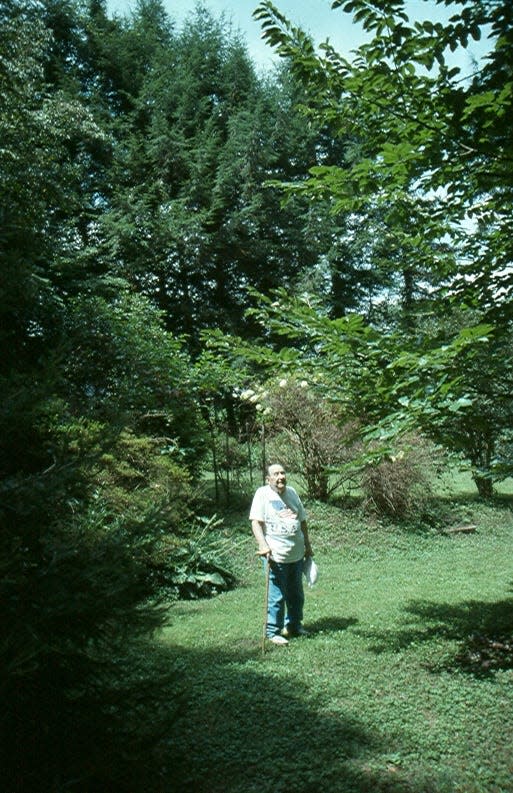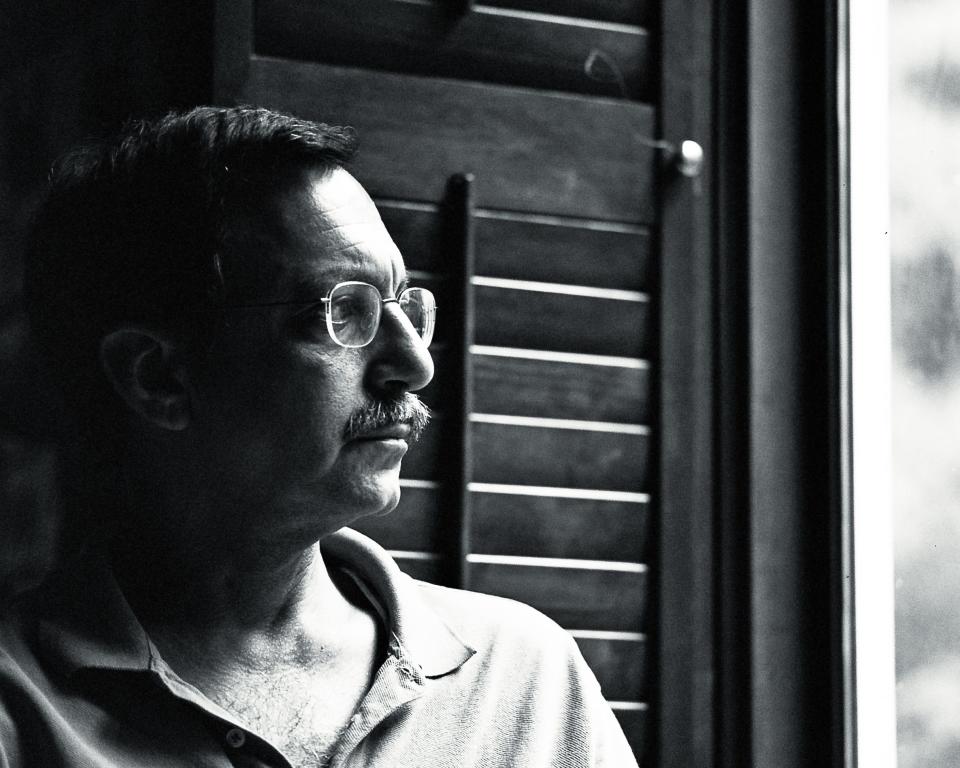Visiting Our Past: W. Asheville man lived humble life of neighborly action

- Oops!Something went wrong.Please try again later.
Nineteen years ago, I interviewed Thomas Young, then a 91-year-old retired pharmacist in West Asheville. In his associations with friends, neighbors, animals and the dear departed of his neighborhood, he was like the genial spirit of the pre-Patton Avenue contingent.
His story came to my mind now because of an analogy with Robert Byrd, the West Virginia senator whose death highlights a transformation from segregationist to civil rights believer.
Being kind to one's kind seems to be the most central moral rule by which people live. Young's life shows how the location of the line that defines one's kind can change.
According to Young, the line had changed for his grandfather, too — during Reconstruction.
"My granddaddy Shaw didn't even own slaves. They didn't have slaves around them, and he didn't believe in slavery," Young said. Virgil Shaw was a young farmer in the Ozarks when the Civil War began and served in the 1st Arkansas Infantry. He survived being wounded at the Battle of Shiloh.
"When he got back," Young continued, "the Carpetbaggers and the freed slaves and the Yankees had burned everything they had to the ground. What livestock they had, they drove off or killed.
"One of the neighbors had a little bit of shelled corn," Young recounted. "The first year, they issued it around among themselves, and my granddaddy got a handful of shelled corn. ... And one of the neighbors happened to find a stray mule, and they swapped it around."
Shaw and his fellow farmers worked themselves back up from practically nothing and witnessed African American farmers doing the same.
"But then there was a certain bunch," Young went on, "that this Carpetbagger group would bring in, and they put them in politics, and they took over all of the political jobs."
Locals were hit with the reparation tax, perpetrated by the Reconstruction government, by which some farmers were dispossessed of their homes.
The legacy that Young inherited was one poisoned by Reconstruction. The transition to integration in America flashed back to that period, for rebellion was in the air.
In Tulsa, Oklahoma, where Young started his career and where he met his wife at the drugstore counter, he lived through the Tulsa Race Riot, May 31-June 1, 1921, considered one of the worst incidents of racial violence in American history.
In Buncombe County, he worked behind the scenes for the States Rights Party. His politics aligned with an antagonism toward privilege, especially as granted by Northern and progressive power brokers. He was glad for the government-funded improvements around Depot Street, he said, but wondered why no one took care of his street, Mitchell Avenue.
He was a humble man. He got together regularly around a potbellied stove in a shack in the Harper and Atkins lumber yard in West Asheville and swapped stories with the likes of Old Man Chester, the railroader.
When Young's wife, Arlene, an independent businesswoman, died after a long illness, Young realized that, unlike his brother who "had 75 suits of clothes, or he was naked," he only had jeans. A neighbor, Bill Osserman, provided him with a suit to wear for Arlene's funeral.
In 1991, Young's pride and joy was his backyard, where 250-year-old trees thrived. He and Arlene became aware of bird society, starting with those creatures that came to their window feeders. Subsequently he turned his yard into a bird sanctuary.
"I want to take you back there and let you see," Young said in the interview. "For over 11 years, I sat by the side of my little wife's bed and looked at it."

Rob Neufeld wrote the weekly history column "Visiting Our Past" for the Citizen Times until his death in 2019. This column originally was published July 5, 2010.
This article originally appeared on Asheville Citizen Times: Visiting Our Past: W. Asheville man lived life of neighborly action

